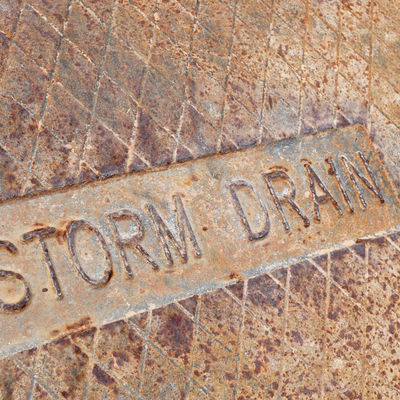Stormwater Management
THE HOMEOWNER’S GUIDE TO PROTECTING OUR WATERWAYS
As water flows over land, it collects soil, pet wastes, fertilizers, oils and other pollutants. Even if your house is not near a stream or river, the runoff will flow down the street into a ditch or storm drain that will eventually empty into a stream, taking soil and pollutants along with it.
By making wise decisions in your yard about lawn care and chemical disposal, you can help protect our water quality. Better water quality means protected sources of drinking water and a safe environment for you and your family.
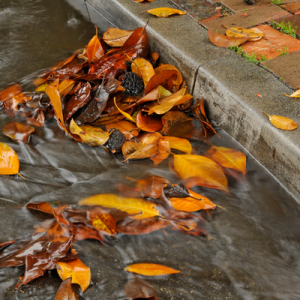
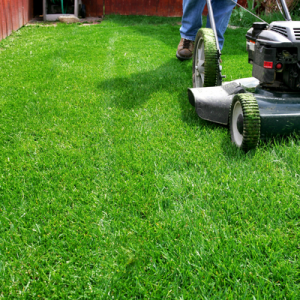
RESPONSIBLE LAWN CARE
Pesticides and fertilizers can improve the appearance of the landscape; however, improper use of these chemicals can harm water quality. Here are some tips to protect water quality:
✔︎ Use fertilizers and pesticides sparingly.
✔︎ Keep fertilizer off of paved surfaces. Sweep it back onto the lawn.
✔︎ Don’t fertilize before a rainstorm.
✔︎ Don’t bag grass. Leave it on the lawn to reduce the need to fertilize.
✔︎ Mow at the proper height. Fescue thrives at 3 inches. Mowing any closer will create favorable conditions for weeds.
PROPER DISPOSAL OF TRASH AND CHEMICALS
Don’t litter. Litter is one of the most unsightly forms of pollution in our local waterways and can easily be prevented. Carry a bag for waste along in the car to eliminate the temptation to throw it out the window. Use an ashtray for ashes and cigarette butts, and properly dispose in the trashcan periodically.
Proper chemical disposal is important for health and safety. Be sure to take chemicals such as paint, furniture stripper, fertilizers, pesticides, herbicides, oil, car batteries and antifreeze to the proper locations for disposal. Information about the appropriate disposal of these materials can be obtained from the Lucas County Solid Waste District at 419-213-2230 or Keep Toledo Lucas County Beautiful at 419-213-2255.
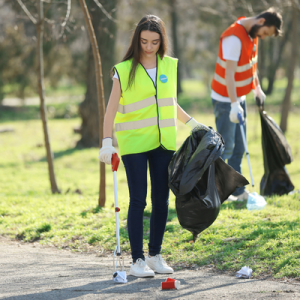
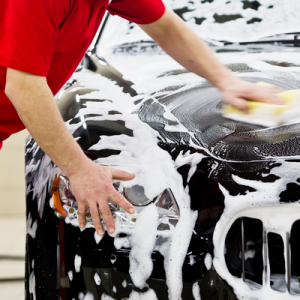
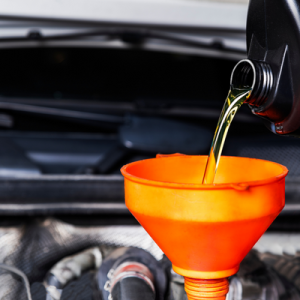
AUTOMOTIVE CARE AND MAINTENANCE
Mechanical Maintenance: Fluid spills and improper disposal of materials result in pollutants entering streams and lakes. Here are some ideas to protect our waterways during vehicle maintenance:
✔︎ Drip pans and draining boards should be used to capture solvents and oils for proper disposal.
✔︎ Use as little water as possible to clean spills, leaks and drips by using rags and dry absorbent material such as kitty litter.
✔︎ Promptly take all fluids and batteries to the proper facility for disposal.
✔︎ Do not pour waste onto the ground or into storm drains.
Cleaning: When cars are washed in driveways and parking lots, the dirty wash water finds its way into the drainage system and ultimately into streams and lakes. Wash water contains pollutants such as oils and grease, phosphates (from the soap), and heavy metals, all of which have negative effects on water quality.
Wash your car in the grass. The wash water will be treated by the soil, and the grass will benefit from the water. An alternative is to wash your car at a commercial car wash. There the dirty wash water enters the sanitary sewer system, where it is treated before being released back into the stream.
PICK UP AFTER YOUR PETS
Animal waste contributes harmful bacteria to local waters. These bacteria can pose health risks to humans and other animals, and result in the spread of disease.
When taking the dog for a walk, take a few small bags and one large zip-lock bag. When doggie makes a deposit, turn a baggie inside out over your hand and use like a glove to pick up the waste. Transfer it to a larger bag and drop it in the trash.
Another option is to take a “poop-scoop” and plastic bags along and deposit waste in public garbage cans along the way.
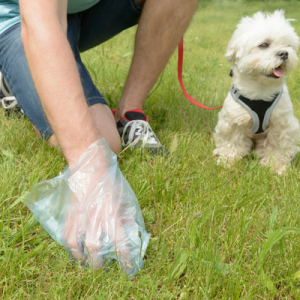
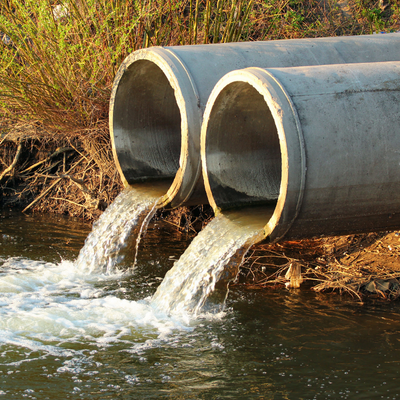
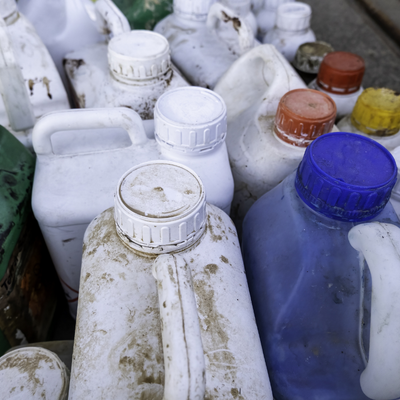
WHAT IS AN ILLICIT DISCHARGE?
The Environmental Protection Agency defines an illicit discharge as any discharge to a separate storm sewer system that is not composed entirely of storm water runoff. Exceptions to this include:
► Discharges from NPDES-permitted industrial sources.
▶︎ Discharges from firefighting, water line flushing, landscape irrigation, lawn watering and the discharge of non-chlorinated swimming pool water.
Illicit discharges can potentially pollute and degrade our streams, rivers and lakes. Additionally, these adversely affect public health and safety, drinking water supplies, recreation, fish and other aquatic life, property values and other uses of land and water.
Some examples of illicit discharges include discharges from failed septic tanks, materials such as motor oil, radiator fluid, paint thinner, gasoline, paint and pet waste that have been illegally dumped into a storm drain or catch basin or an oil or chemical spill that reaches the storm sewer. These non-storm water discharges occur due to spills, dumping and improper connections to the municipal storm sewer from residential, industrial, commercial or institutional establishments.
The City of Maumee has a separate storm sewer system. All of the storm sewers discharge into a stream or river. Therefore, it is important to protect our storm sewers and waterways from illicit discharges.
If you suspect an illicit discharge, report it to the Sewer Division at 419-897-7190. Someone will be available during normal business hours, or feel free to leave a message during evening, weekends and holiday hours. Or contact us at sewers@maumee.org.
STORM WATER FACTS
▶︎ 16 times more storm water runoff is produced by a one-acre parking lot compared to a one-acre meadow.
▶︎ A single quart of motor oil dumped down a storm drain creates a two-acre oil slick.
▶︎ 70 million pounds of active pesticide ingredients are applied to lawns in our country each year.
▶︎ Three billion fecal coliform bacteria are produced by an average sized dog dropping.
▶︎ Over one million acres of land are converted to urban use in the U. S. each year.
▶︎ Approximately 27,200 gallons of water fall on a one acre yard during a one inch rainfall.
▶︎ Recent research has discovered that urban stream quality begins to decline sharply once impervious cover in a watershed, such as streets, driveways, sidewalks and rooftops, exceeds 10%.
For more information or to report stream pollution you may contact the City of Maumee Sewer Division at 419-897-7190.
